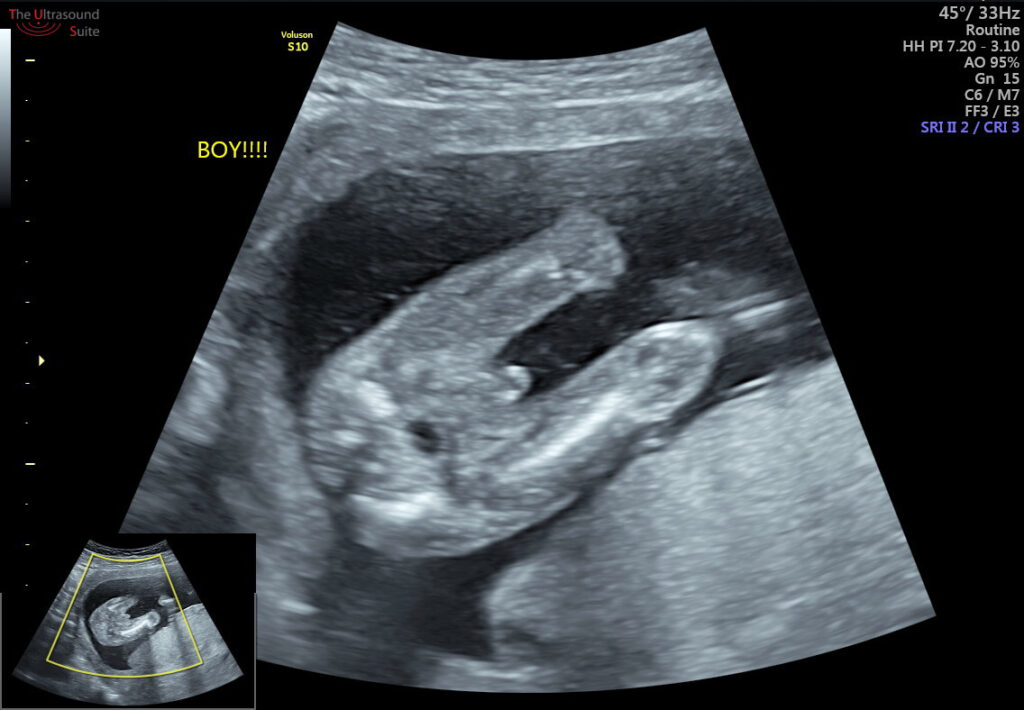One of the most exciting things about pregnancy is finding out the gender of your baby. Knowing whether you’re having a boy or a girl can help you plan for the future and make all sorts of decisions about the baby’s room, clothes, and name. But when does a baby’s gender develop? And how can you find out what you’re having? Let’s take a closer look.
Table of Contents
How Gender Is Determined
First of all, it’s worth noting that gender is determined by chromosomes. Women have two X chromosomes, while men have one X and one Y chromosome. When sperm fertilizes an egg, the resulting embryo will receive either an X or a Y chromosome from the father. If the embryo gets an X, it will develop into a girl; if it gets a Y, it will develop into a boy. This process happens at the moment of conception, so technically, your baby’s gender is determined from the very beginning.
When You Can Find Out the Gender
 Source: bing.com
Source: bing.comBut just because the gender is determined from the start doesn’t mean you can find out right away. In fact, most doctors won’t even attempt to determine the gender until around 20 weeks of pregnancy. At this point, the baby’s genitals are developed enough to be seen on an ultrasound. However, some women choose to have a blood test called a noninvasive prenatal test (NIPT) as early as 10 weeks into pregnancy to determine the gender. This test looks for bits of the baby’s DNA in the mother’s bloodstream and can also screen for genetic disorders.
Factors That Can Affect Gender Development
While the gender is determined at conception, there are some factors that can affect the development of the baby’s genitals. For example, certain hormones produced by the mother or the baby can have an impact on the formation of the genitals. In some cases, babies may be born with ambiguous genitalia or with genitalia that doesn’t match their chromosomes. This is known as a disorder of sexual development (DSD) and can be caused by a variety of genetic or hormonal factors.
Why Some People Choose Not to Find Out
Of course, not everyone wants to find out the gender of their baby. Some people prefer to keep it a surprise until birth, while others may be concerned about gender disappointment. Gender disappointment is a real phenomenon in which parents feel sadness or disappointment if their baby’s gender doesn’t match their expectations. This can be particularly difficult for parents who have experienced fertility struggles or who have a strong desire for a baby of a certain gender. Ultimately, whether or not to find out the gender is a personal decision that should be made based on your own preferences and needs.
In Conclusion
So, when is a baby’s gender developed? The answer is from the moment of conception. However, most parents won’t find out the gender until around 20 weeks of pregnancy or through a blood test as early as 10 weeks. While there are some factors that can affect gender development, the vast majority of babies will develop normally and according to their chromosomes. Whether or not to find out the gender is a personal decision that should be made based on your own preferences and needs.
Frequently Asked Questions
Q: Can I find out the gender before 20 weeks?
A: Yes, you can have a blood test called a noninvasive prenatal test (NIPT) as early as 10 weeks.
Q: How accurate is an ultrasound for determining gender?
A: Ultrasounds are generally very accurate at determining gender, but there is a small margin of error.
Q: What is gender disappointment?
A: Gender disappointment is a real phenomenon in which parents feel sadness or disappointment if their baby’s gender doesn’t match their expectations.
Q: Can certain factors affect the development of a baby’s genitals?
A: Yes, certain hormones produced by the mother or the baby can affect the formation of the genitals. In some cases, babies may be born with ambiguous genitalia or with genitalia that doesn’t match their chromosomes.
Q: Should I find out the gender?
A: Whether or not to find out the gender is a personal decision that should be made based on your own preferences and needs.
